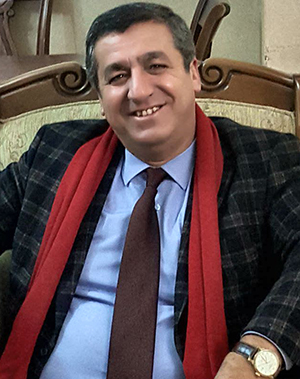
“No one can serve two masters; for either he will hate the one and love the other, or he will be devoted to one and despise the other.” (Mathew 6: 24 ).
By the saying, “No one can serve two masters,” the text emphasizes love of the truth and the meanings of the truth.
Just as with everything, there are different types of servanthood. This differentiation is analogous to the variety of forms of love.
Any love which does not have within its spirit the love and knowledge of the Lord will not lead to success. It will lead through the narrow lanes of life to a dead end. It deceives.
Here, the essential thing is the liberating love of the truth. In the internal world of a human being, no love should be higher or more of an effective force, than the divine love of the truth, which creates and directs life.
This divine word contains comprehensive, very powerful and deep messages for the meaning of life.
This word leads a person to the dilemma, that is, to the center of the contradiction within his own self. It speaks of ego and spiritual conflict within us. It explains the war between the two sides of darkness and of the light within us as human beings.
On the one hand, this word exposes the love which compels us to live according to ethical, humane and permanent values, to give and receive love and respect, to contribute the feeling of responsibility and belonging; and on the other, it exposes the power of the other kind of love that undercuts us, keeps us from doing good, reigns us in, and directs us to evil inclinations that sabotage our own labors.
While the word sounds this warning, at the same time it directs us to the true love which is life itself and the essence of it. It is also a call to the goal of life within an awareness of the means to attain it. This call is the call to extract ourselves from the world in which we live in captivity rooted in fear-captivity to the ego and to internal conceit; and it is the call to bring us face to face with PURE LOVE. It is an invitation telling us we can find power, love, and happiness, not outside of ourselves, but within ourselves. As in the illustration of the vine and the branch, this word points to the branch’s love of union to the vine as the means, with the goal of finding true life.
The 13th-century author and Syriac sage Bar Hebraeus, actually cries out this foundational truth by saying, “Let us abduct ourselves by force. Let us focus inwardly so that we may discover the paradise hidden within us. In other words, let us see our God there.”
The inner world is a work of the spirit.Everyone is responsible for their own spiritual development. The inner world is a realm for a journey to know yourself, to a position where you are responsible for yourself and others. A journey is not performed while serving two masters; and if it is, the end is disappointment and loss.
Yusuf Beğtaş
Mardin
You can also send us an email to karyohliso@gmail.com
Leave a Comment